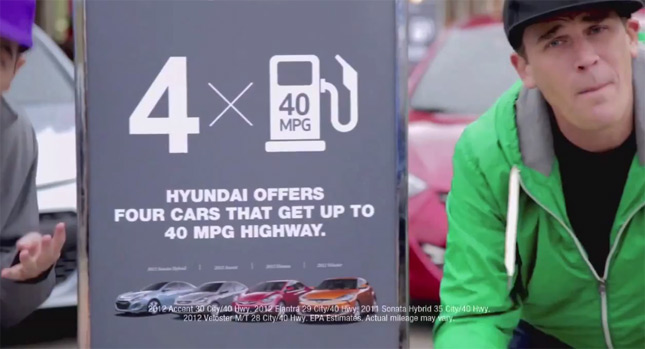Fuel-economy is a hot issue these days. Not only because of environmental issues but also on a more practical level, due to gas being a big, and these days increasing, part of a vehicle’s running costs.
Mileage is thus a big consideration for a large number of new car buyers. Therefore, when you advertise that you are an industry leader in the field with four of your models rated at 40 mpg on the highway, you had better be sure you are right or it will cost you dearly.
The Environmental Protection Agency found discrepancies between its own test results and the mileage posted on the cars’ window stickers at Hyundai and Kia dealerships.
According to The Detroit News, this finding was the outcome of an investigation that began eight months ago when EPA’s Ann Arbor laboratory noticed differences between its own results and the official figures on a 2012 Elantra.
Both carmakers have apologized and offered to compensate nearly 900,000 customers who have bought their vehicles since late 2010. It’s a move that will cost Hyundai millions and, according to the EPA, it’s very rare as, since 2000, only two vehicles had their window sticker mileage reduced: the 2001 Dodge Ram, by 1 mpg, and the 2012 BMW 328i by 2 mpg highway/1 mpg city.
This time, though, it affects most Hyundai models, such as the Elantra, Genesis, Azera, Accent and Veloster. The same stands for sister company Kia with the Sportage, Optima HEV, Rio and Sorento being included in the list.
“Consumers rely on the window sticker to help make informed choices about the cars they buy”, said Gina McCarthy, assistant administrator for EPA’s Office of Air and Radiation.
Hyundai Motor North America president and CEO John Krafcik offered a public apology: “Given the importance of fuel efficiency to all of us, we’re extremely sorry about these errors. We’re going to make it right.”
“When we say to Hyundai owners ‘We’ve got your back,’ that’s an assurance we don’t take lightly”, added Krafcik. “We’re going to make this right for everyone and we’ll be more driven than ever to ensure our vehicles deliver outstanding fuel economy.”
Likewise, Kia Motors America executive VP for marketing and communications Michael Sprague stated that the company “really regrets the errors and we sincerely apologize to all our owners”.
The issue, said Krafcik, was due to a “procedural error” on the company’s part due to a change in its methodology in 2010. President of Hyundai Motor America Technical Center Sung Hwan Cho said that errors in “coastdown” testing, which simulates aerodynamic drag, drivetrain frictional losses and tire rolling resistance, are to blame for the discrepancies.
The problem concerns 35 percent of 2011-2013 vehicles sold through October, or about 900,000 units. For about 580,000 of those, mileage estimates will fall by 1 mpg, for 240,000 by 2 mpg and for the remaining 80,000 by 3 to 4 mpg.
Dealers will check the cars’ odometers and calculated how much their owners would have saved, based on the fuel price in the area, had the stated mileage been identical to EPA’s findings.
Then Hyundai and Kia will add 15 percent to the total amount and send debit cards to their owners, while they will continue to reimburse them for as long as they own the vehicle. Owners of affected vehicles who have since sold their cars will also be reimbursed using the same method.
Sprague estimated that an owner of a car in Florida with a 1 mpg discrepancy covering 15,000 miles this year will get a refund of US$88. That’s excluding future payments, though, so with the number of owners being close to a million, the company may end up spending tens of millions of dollars.
It will also reduce the automakers’ average fuel economy rating by 3 percent, although it will still remain within EPA regulations.
By Andrew Tsaousis
PHOTO GALLERY









